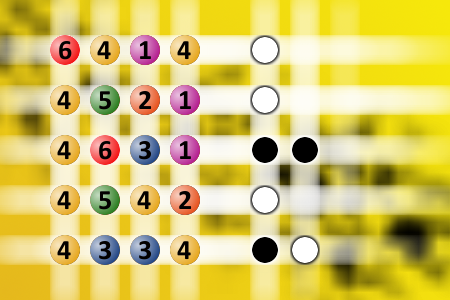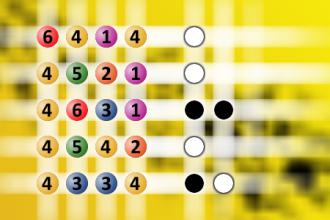Which is a winning combination of digits?
The computer chose a secret code (sequence of 4 digits from 1 to 6). Your goal is to find that code. Black circles indicate the number of hits on the right spot. White circles indicate the number of hits on the wrong spot.Correct answers: 31
The first user who solved this task is Djordje Timotijevic.
#brainteasers #mastermind

Problem With Gas
A little old lady goes to the doctor and says, "Doctor I have this problem with gas, but it really doesn't bother me too much because they never smell and are always silent. As a matter of fact, I've farted at least 20 times since I've been here in your office."
The doctor says, "I see, take these pills and come back to see me next week.
The next week the lady goes back to his office. "Doctor," she says, "I don't know what you gave me, but now my farts, although still silent, stink terribly!"
The doctor says, "Good, Now that we've cleared up your sinuses, let's work on your hearing."

